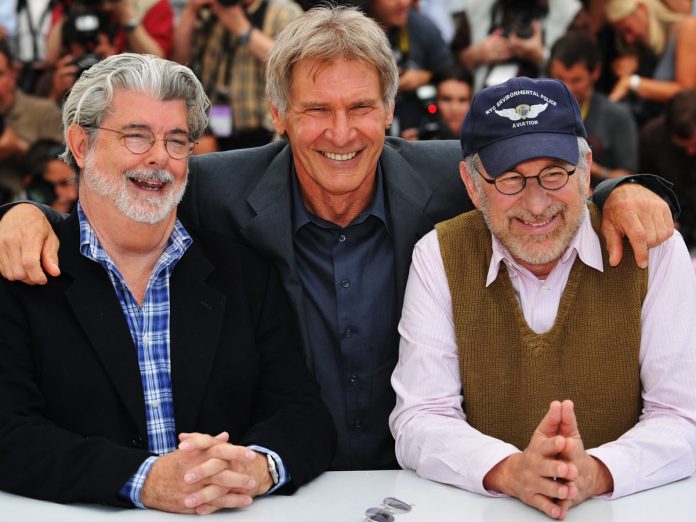Matrix Resurrections is an example of an increasing trend of filmmakers returning to a film franchise they had success with, but decades later. We examine some prominent examples of when this has worked out well, and when it hasn’t.
More so than ever, Hollywood has found success in mining its past. It seems like if a major movie isn’t a sequel to a long-running franchise, it is a remake, or reboot. We’ve even gotten to the point of Hollywood picking up the bones of long-dead franchises and trying to make them relevant again. Think about Tron: Legacy, the later Die Hard sequels, or the myriad of Terminator or Predator sequels we’ve seen over the last 15 years.
But, there are certain risks associated with reinventing a franchise for these modern times, and handing it over to a new filmmaker with a different vision than the original film(s) is risky. So, at least in this regard it would make sense to bring in creative talent from the original film(s) to make sure that the new sequel is at least on brand. The whole reason a studio will consider bringing a franchise back from the dead in the first place is to take advantage of the nostalgic appeal. If the new film doesn’t remind the audience of the original(s), they may not appreciate it.
Below I have outlined 5 modern examples of a franchise trying to reinvent itself for modern audiences after a successful run more than a decade prior. In each of these examples we have a prominent film maker agreeing to return to the fold. While each of these examples were highly anticipated, the end results were mixed. We discuss what went wrong in the cases of delayed sequels not meeting expectations, and how the return of the creative talent helped to achieve success in those that did meet expectations. Finally, we’ll look at each example for clues on how it can be used to gauge future attempts by Hollywood to mine its past.
James Bond
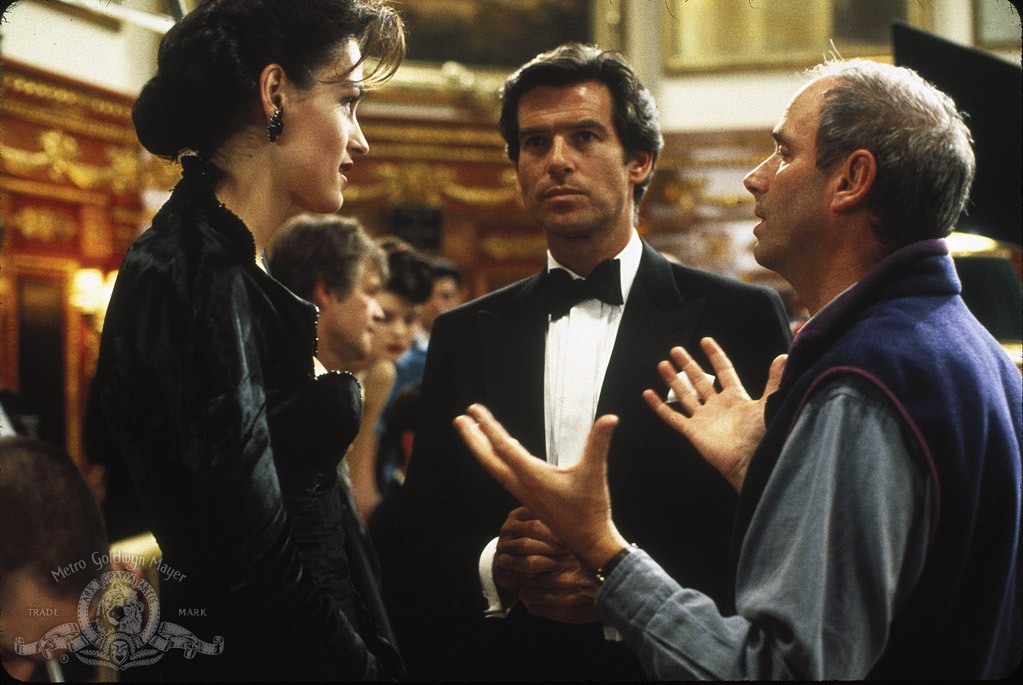
The filmmaker: Martin Cambell
Original film: Goldeneye (1995)
More Modern Sequel: Casino Royale (2006)
Success or Failure? Success.
Lessons learned? As one of the longest-running film franchises on the planet, James Bond has a history of consistency. The reason for this is that the film’s production is not controlled by a large production studio with several different franchises to keep track of, but a smaller production company (Eon Productions) which has chiefly only been focused on making James Bond movies. This invites a close-knit group of filmmaking talent which is mostly free from the pressures (and strains) of multiple stakeholders acting on a single production.
This approach has extended into the creative talent as well. The series has retained many of its writers, directors, producers, and other important contributors for many different films. Only recently has there been more turnover with a different direction being taken with each sequel. In 1995 Martin Cambell was brought in to reboot James Bond for the 1990’s. His experience of making tense action-thrillers paid off, as Goldeneye proved to be one of the most successful Bond films ever made. Unfortunately, the studio went in different directions for its next few films, straying from the model of consistency it had clung to in the preceding decades.
When it was time to reboot the franchise once again, they brought back Martin Cambell because he had been the modern Bond director who had had the most success. Again, his influence was important in structuring the franchise for the 21st Century, and laid the groundwork for others to build off of. Again, the franchise struggled when it decided to change directors, but the new approach to Bond was strong enough that it eventually recovered, unlike what happened in the 90’s.
I feel like the approach by Ion Studios to making James Bond films is very unique in the industry, and the only real comparison is the MCU. With the MCU, Disney brought together a group of producers who would focus only on developing the franchise. Much like the James Bond franchise, the MCU has grown from a focused foundation which has granted it a remarkable consistency. That’s the approach I think other franchises can take from the success of Bond as well. Creating a tentpole franchise requires commitment to producers and creative minds who are committed for the long term.
Blade Runner / Alien
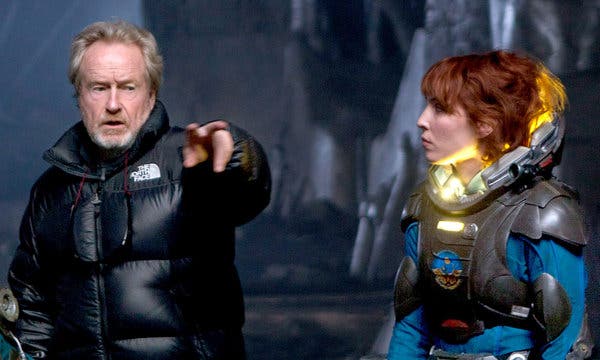
The filmmaker: Ridley Scott
Original film: Alien / Blade Runner
More Modern Sequel: Prometheus, Alien: Covenant / Blade Runner 2049
Success or Failure? Neither
Lessons learned? Scott made a name for himself with Alien which combined the thrills of horror with the limitless potential of science fiction. That combination was a hit with audiences. His follow-up was Blade Runner, which is considered to be one of the most influential science fiction films ever made. However, it was somewhat misunderstood at the time of its release and did not do well in theaters.
The Alien franchise had its share of difficulties as it churned out sequels to declining audience interest. The lack of success of the original Blade Runner also meant there was no interest in making a sequel. All of that changed in the 2010’s when new audiences experienced these original films for the first time. At the time Hollywood was also going through a renaissance of updating old franchises. For these reasons it made some sense to consider delayed sequels to these classic science fiction films.
For Prometheus and Alien: Covenant, Ridley Scott was brought in, but I feel like his approach was contrary to what fans of the series wanted, or even expected. Scott used Alien as a starting point for what was essentially a new franchise, rather than building off of what the original film had accomplished in the first place. Scott’s approach makes sense from the perspective of a filmmaker who didn’t want to retread himself. But in the process the new films lost some of what made the originals appealing. This is one of the concerns of bringing back an experienced filmmaker. Their past success makes them feel like they have command over the material and the direction of the series, which may not align with younger audiences who are experiencing the original for the first time and have not had decades to let it sink in.
The issue with Blade Runner 2049 is similar, but in this case Scott was brought in just as a producer, not a director. So in this case he has less control over the production, and it was a more collaborative approach. In many ways this film was a success, but it did not necessarily make enough money at the box office to be profitable. As a result, other studios may look at it and reconsider making delayed sequels for films which were not initially successful, no matter how much more popular they have become since.
Halloween
The filmmaker: John Carpenter
Original film: Halloween (1979)
More Modern Sequel: Halloween (2018)
Success or Failure? Success
Lessons learned? Like Ridley Scott, Carpenter had a hit early in his career with a film that would found a franchise. And while he would produce the next two sequels, he was reluctant to be involved in the franchise for the long term. That would change when Blumhouse took over production of the 10th sequel, and intended to redirect the approach of the series. Carpenter was brought onboard in a producer role, acting as a special consultant.
Carpenter decided to join the franchise again because he felt like he had been left out of what had happened in the interim. For the production studio it was a way to reconnect fans of the original who may have lost interest in the franchise after so many lack luster sequels. Furthermore, it allowed Carpenter an opportunity to have a positive impact in an area he was familiar with.
This is a case of bringing back an original filmmaker but not having them as significantly involved in the new film as they could have been. Its a win-win for the filmmaker and the production studio. The filmmaker (Carpenter) doesn’t have to worry about another sequel changing the legacy of his original film because he gets a say in it. Likewise, the studio isn’t giving him full control, and can bring in other filmmakers who may have a better idea of how the franchise can grow in the modern film market.
Indiana Jones
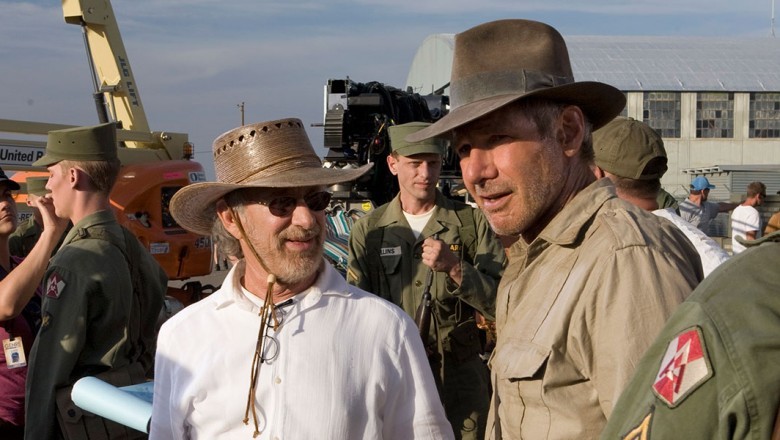
The filmmaker(s): Steven Spielberg and George Lucas
Original film: The original Indiana Jones trilogy
More Modern Sequel: Indiana Jones and the Kingdom of the Crystal Skull (2008)
Success or Failure? Failure.
Lessons learned? Spielberg as a filmmaker has had no shortage of success and hits. Those include all of the previous Indiana Jones films. Lucas had originally planned to make 5 Indiana Jones films, and indeed plans were made in the 1990’s to create a third sequel. However, Spielberg’s focus on more serious films, and Lucas’ eventual interest in making more Star Wars films (which could have been another entry in this article) resulted in both of them leaving the project.
In the 2000’s both filmmakers became available again, and determined they would want to make another Indiana Jones film with Harrison Ford because they had great memories from working together previously. However, the landscape of popular cinema had changed significantly since the late 80’s, and that meant a new Indiana Jones film would have to adapt. In specific, that meant more of a focus on using CGI to create entertaining action sequences.
However, that reliance on CGI did hurt the final product. Similarly, the films’ plot felt disconnected from the original trilogy. It was an example of filmmakers trying to create a need for another Indiana Jones film rather than meeting audience expectations for one. Consider the fact that the third film ended the original trilogy on a high note, and neither Lucas nor Spielberg wanted to make another film at that time. It was an indication that the franchise had already achieved what it set out to achieve, and probably should have been left alone.
Independence Day
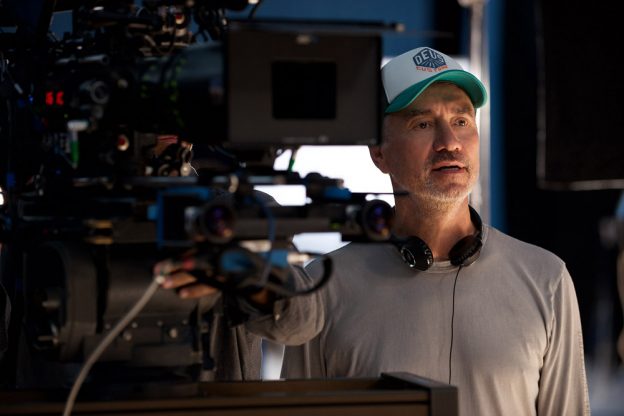
The filmmaker: Roland Emmerich
Original film: Independence Day (1996)
More Modern Sequel: Independence Day: Resurgence (2016)
Success or Failure? Failure
Lessons learned? The original Independence Day was an example of the right film at the right time. It reinvented the disaster movie for the 1990’s thanks to improvements in special effects and the establishment of blockbuster cinema. It was, for lack of a better word, event cinema. The Audience ate it up and had fun at the movies. It wasn’t meant to be taken super serious. It was cinema at its most effortless.
Fast forward 20 years later and the delayed sequel doesn’t have the same hook as the original. Part of the problem is that the industry had moved on from where it was in the 1990’s. Sure, the early 2000’s flirted with more big-dumb FX-laden blockbusters, but by the 2010’s, audiences wanted more sophistication. Disaster movies felt like excuses to use CGI, and because of the proliferation of the technology, it wasn’t as unique of a trick.
Furthermore, the sequel feels like a rehash of the original. This is a problem because first of all the draw of the original film wasn’t really related to its plot – it was all about watching those sweet sweet explosions and kicking alien ass. Repeating the plot just doesn’t give audiences enough incentive. Second, the first film didn’t really become a cult hit. It was simply a fun movie we went to theaters to watch. Fans aren’t expressly passionate about it. In fact, 90’s action movies didn’t really age well as a whole.
For these reasons, a delayed sequel to Independence Day doesn’t make a whole lot of sense. Sure we had fun with the first one, but most of that fun came from it being a novel idea at the time. 20 years later the same approach has been done ad nauseum, and so the sequel really needed to up its game. Unfortunately if you look back at Emmerich’s career he has mostly been doing the same type of film over and over again. So bringing a filmmaker of his caliber to make the same movie over again just feels like a waste of time, and indeed it was.

